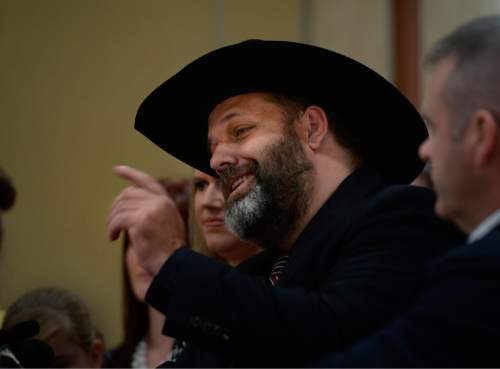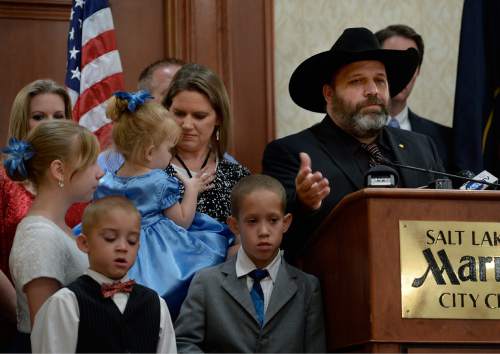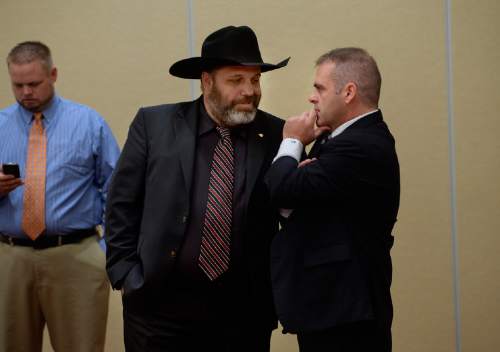This is an archived article that was published on sltrib.com in 2016, and information in the article may be outdated. It is provided only for personal research purposes and may not be reprinted.
Federal prosecutors are asking a judge to allow them to bring new criminal charges against Rick Koerber, the former Utah County real estate investment guru whose business collapsed owing investors some $50 million.
One big question now is whether they will get a more favorable ruling after a new judge took over the case against Koerber, who was first charged in May of 2009.
U.S. District Judge Clark Waddoups recused himself from the case in May for unspecified reasons after presiding since November of 2010. Judge Jill Parrish is now the fourth district court judge who has been assigned to the case.
Koerber ran a series of entities grouped around his Franklin Squires Cos. and Founders Capital through which he taught a real estate investment strategy called "equity milling" and, according to criminal charges, took in about $100 million in investments by offering returns of 2 percent to 5 percent per month.
Indictments alleged that Koerber's enterprise did not make money, and that he had used some of the funds to buy two Ferraris at more than $200,000 apiece, invested in movie productions and provided risky loans to friends. The government also alleged he also used monies from new investors to pay off earlier ones, the type of operation generally known as a Ponzi scheme.
But Waddoups tossed the case out in August of 2014, ruling that during the five years that charges were pending, government attorneys violated the Speedy Trial Act, which requires a case to go to trial within 70 days of charges being filed unless the court makes specific findings about exceptions allowed under the law.
Waddoups further found, in a harsh rebuke, that prosecutors, "through the pattern and conduct of this case, have been strikingly unwilling to conform their own conduct to the Constitution, the applicable ethical standards, rules and statutes."
Waddoups dismissed the case with prejudice, meaning it could not be refiled.
Acting on the government's appeal, the 10th Circuit Court of Appeals largely upheld Waddoups' ruling, but did send the case back for consideration on two areas, the most serious of which focuses on whether Koerber and his attorney bear some responsibility for the delays in the case reaching trial.
In a brief filed late last week, Assistant U.S. Attorney Stewart Walz told Parrish that while the government concedes there were violations of the Speedy Trial Act, the case should be dismissed without prejudice. That would allow prosecutors to seek a new indictment.
Walz argues that Koerber or his attorney Marcus Mumford are responsible for much of the delays, having sought various time-outs in order to file motions and never once asking for a trial date.
"Koerber is almost solely responsible for the delays in setting a trial date," wrote Walz, who cited the government's 14 requests to schedule a trial, which were opposed by Koerber, and 30 instances of missed filing deadlines that caused 14 months of delays.
Mumford, in an April filing, pointed out that the 10th Circuit Court had upheld Waddoups' ruling on government misconduct in the case and blamed the delays on that misconduct and prosecutors' failure to prepare orders to comply with the Speedy Trial Act.
Any delay caused by Koerber, Mumford argues, "pales in comparison to the culpability previously attributed by this court to the government."
Parrish has not indicated whether she will ask for oral arguments or make a ruling based on the written filings.







